Gaza Update: Don’t Expect Quick Action by the International Criminal Court
The initiative to push the ICC into action rests with the Palestinians, and Palestinian Authority President Mahmoud Abbas is stalling.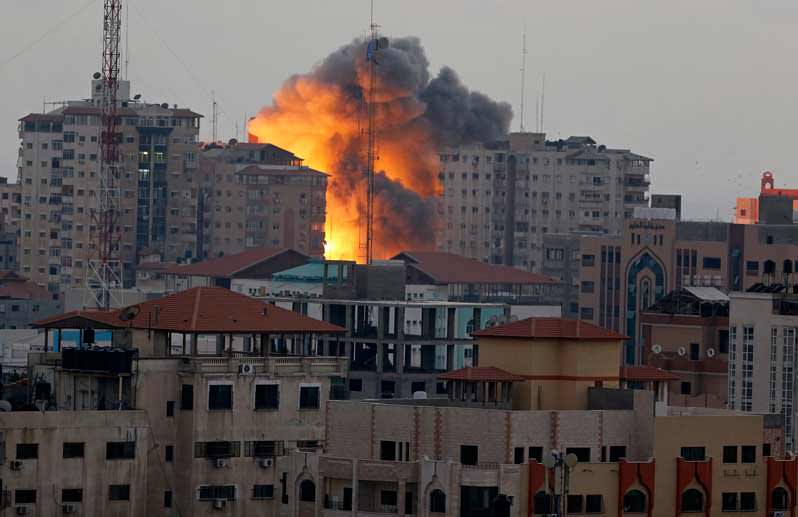 Israeli aircraft fired two missiles at a 12-story apartment tower in downtown Gaza City on Saturday, collapsing the building, sending a huge fireball into the sky and wounding at least 22 people, including 11 children, witnesses and Palestinian officials said. AP/Adel Hana
Israeli aircraft fired two missiles at a 12-story apartment tower in downtown Gaza City on Saturday, collapsing the building, sending a huge fireball into the sky and wounding at least 22 people, including 11 children, witnesses and Palestinian officials said. AP/Adel Hana
Even if a newly proposed temporary cease-fire takes hold in Gaza, it won’t erase the devastation that has occurred since the breakdown of the last truce, or diminish the need to refer the conflict now well into its second month to the International Criminal Court.
Unfortunately, even if a fresh cease-fire were in place, the prospects for speedy action by the ICC would remain dim. This is a war, not only an open war between Israel and the Palestinians, or Israel and Hamas, but a covert war of the Palestinian Authority based in the West Bank under the leadership of President Mahmoud Abbas against Hamas and its militant ally, the Islamic Jihad. Like most wars, events on the battlefield, both public and hidden, will have to play out fully before judges and lawyers can effectively intervene.
In the event that you’re not keeping your own scorecard on the conflict like the one posted daily by The Times of Israel, here in a nutshell are the past week’s battlefield lowlights, caked in rubble and blood:
On the Israeli side of the ledger, the IDF killed three senior Hamas military commanders in an airstrike Thursday. That bulls-eye blast was followed by a strike over the weekend that took out one of the militant organization’s top financial officers. Additional sorties leveled a seven-story office building in Rafah and flattened a 12-floor apartment building in Gaza City. The Palestinian death toll since the outbreak of hostilities July 8 now tops 2,100, with civilians comprising 75 percent or more of the fatalities, according to the U.N.
In a concerted effort to keep pace with their far-better equipped adversaries, Hamas and Islamic Jihad launched 140 rockets at Israel on Sunday alone, bringing the number of missiles they have indiscriminately fired throughout the war to over 3,700. A mortar attack Friday took the life of a 4-year-old Israeli boy on a kibbutz near the Gaza border. A day earlier, a senior Hamas official disclosed at a conference in Istanbul that the group’s military wing indeed was behind the June kidnapping and killing of the three Israeli teenagers in the West Bank that precipitated the current conflict.
And to dispel any lingering doubts about its organizational bravado, determination and sheer thuggish street cred, Hamas retaliated for the assassinations of the three military honchos by dispatching firing squads to summarily and publicly execute 22 suspected Israeli collaborators. The shootings brought the total number of alleged spies put to death during the war to 52. At least no one was beheaded.
Caught in the middle of the mayhem and now arguably the region’s most pragmatic arbiter is Abbas, who consistently has urged the parties to negotiate a lasting settlement in Cairo. Abbas, in turn, has been urged by human rights groups around the globe to refer the Gaza carnage to the ICC, both as a means of holding the guilty accountable and as a deterrent to future acts of aggression.
The ICC is the only permanent international tribunal that tries individuals, rather than states, accused of committing war crimes and crimes against humanity. As I have written before in previous columns, opening a Gaza case before the ICC is a sound idea and should be relatively easy to accomplish. Disputes come to the court in three ways: U.N. Security Council referrals; referrals by states that are parties to the Rome Statute (the name given to the international treaty that established the court); and by way of requests or complaints filed by or on behalf of non-member states that have agreed in writing to accept the court’s jurisdiction concerning a particular dispute on an ad hoc basis.
The ICC’s chief prosecutor — former Gambian Attorney General Fatou Bensouda — advised Abbas in early August that to open a preliminary examination on the situation in Gaza (the first step toward an ultimate trial), the Palestinian Authority has two options: It could either accept the court’s general jurisdiction by formally becoming a party to the Rome Statute and filing appropriate ratification documents with the U.N. General Assembly, or it could accept a more limited jurisdiction solely over the present conflict by filing a new ad hoc declaration directly with the court. A 2009 Palestinian ad hoc declaration was previously rejected by the court because Palestine was not yet recognized as a state. A U.N. resolution adopted Nov. 29, 2012, however, gave Palestine non-member observer state status in the world body.
Neither of the two avenues open to Abbas requires Security Council endorsement, which the U.S., acting on behalf of itself and Israel, would certainly foreclose. But as simple as the two remaining routes to the ICC may be, Abbas has hesitated, insisting that unity is the key to legal action and that all Palestinian factions would have to climb on board before he would seek to join the court. Yet even now, after reports surfaced Saturday that Hamas had signed a pledge to support a court referral, Abbas has indicated he isn’t ready.
Rather than rushing off to the Hague, where the court is headquartered, with Hamas’ written consent in hand, Abbas has signaled that he will delay further appeals to the ICC until either the U.N. Human Rights Council completes its Gaza war crimes inquiry in March, or until hostilities in Gaza permanently stop and he completes a plan unveiled Sunday to persuade the Security Council to set firm dates for an end to the Israeli occupation and for the creation of a full-fledged independent Palestinian state.
Apart from the risk of provoking further American and Israeli wrath, the reason for the continued delay is both simple and well founded: The Palestinian Authority does not and cannot trust either Hamas or Islamic Jihad to cooperate in a proceeding before the ICC, where alleged Palestinian war crimes would be examined alongside those of Israel and where — because the ICC does not conduct trials in absentia — leaders of both militant organizations would be required to surrender themselves in response to ICC arrest warrants and face the probability of conviction and lengthy prison terms.
The court would also likely issue arrest warrants for Israeli leaders, who no doubt would ignore them. Nonetheless, according to noted human rights attorney Michael Ratner, director emeritus of the New York-based Center for Constitutional Rights, Israel is “terrified” of a possible ICC investigation and the mere chance that its principals might be charged with war crimes.
The bottom line, then, is that the initiative to push the ICC into action rests with the Palestinians. For its part, Islamic Jihad has stated openly that it will not cooperate with an ICC referral. And despite its promise of support, Hamas’ barbaric and expanding program of summary executions, including those of two women accused of collaboration, has driven yet another — and possibly insurmountable — wedge between itself and the Palestinian Authority, rendering the idea of a cooperative referral to the ICC infeasible. Jordan-based website Albawaba.com quoted the Palestinian Authority’s secretary-general as saying Saturday, “The executions were done in cold blood and according to Hamas law, which is: who is not with Hamas is against it.” The mass slayings have also been denounced in the strongest terms by Amnesty International.
So another week of slaughter and attempted slaughter in Gaza and Israel has come and gone, and so too perhaps have the prospects of bringing to justice the radical extremists on both sides of this seemingly endless war.
Your support matters…Independent journalism is under threat and overshadowed by heavily funded mainstream media.
You can help level the playing field. Become a member.
Your tax-deductible contribution keeps us digging beneath the headlines to give you thought-provoking, investigative reporting and analysis that unearths what's really happening- without compromise.
Give today to support our courageous, independent journalists.
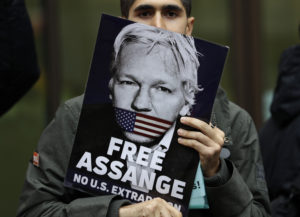
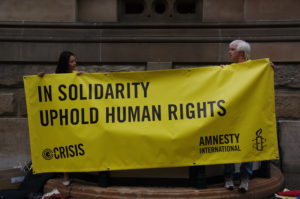
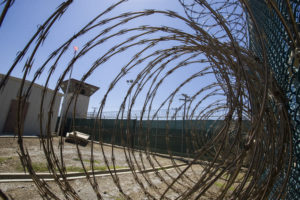

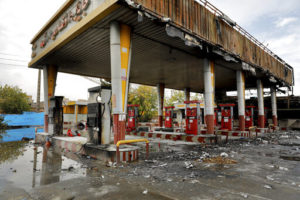
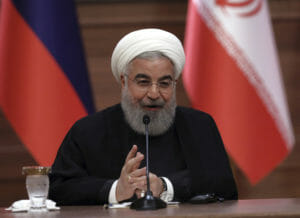
You need to be a supporter to comment.
There are currently no responses to this article.
Be the first to respond.